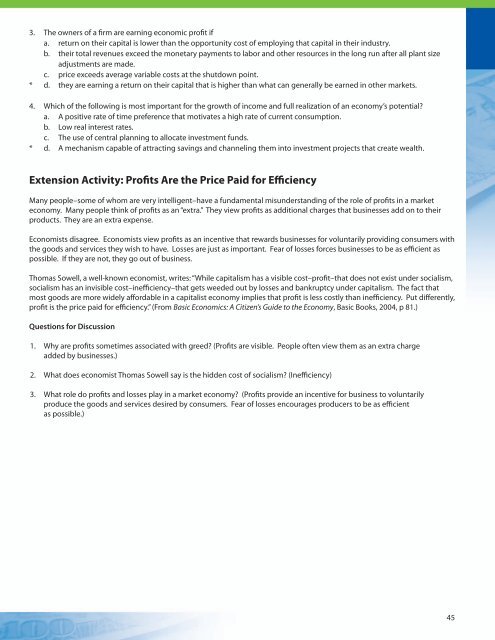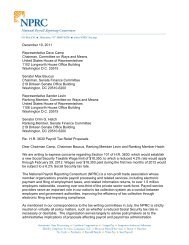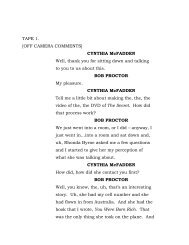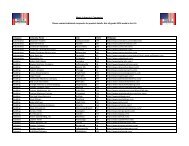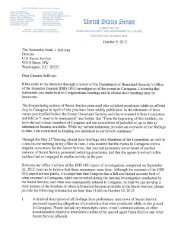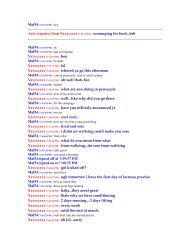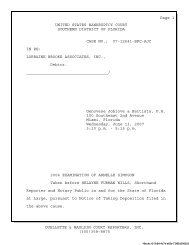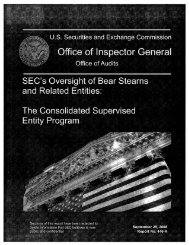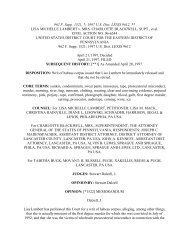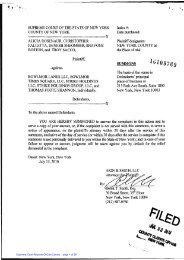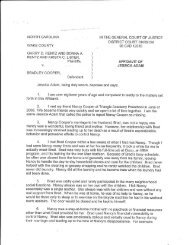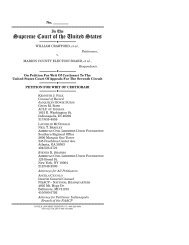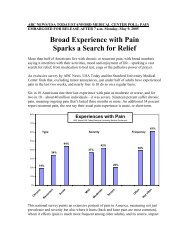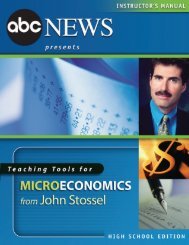to download the Microeconomics teachers guide - ABC News
to download the Microeconomics teachers guide - ABC News
to download the Microeconomics teachers guide - ABC News
Create successful ePaper yourself
Turn your PDF publications into a flip-book with our unique Google optimized e-Paper software.
3. The owners of a firm are earning economic profit if<br />
a. return on <strong>the</strong>ir capital is lower than <strong>the</strong> opportunity cost of employing that capital in <strong>the</strong>ir industry.<br />
b. <strong>the</strong>ir <strong>to</strong>tal revenues exceed <strong>the</strong> monetary payments <strong>to</strong> labor and o<strong>the</strong>r resources in <strong>the</strong> long run after all plant size<br />
adjustments are made.<br />
c. price exceeds average variable costs at <strong>the</strong> shutdown point.<br />
* d. <strong>the</strong>y are earning a return on <strong>the</strong>ir capital that is higher than what can generally be earned in o<strong>the</strong>r markets.<br />
4. Which of <strong>the</strong> following is most important for <strong>the</strong> growth of income and full realization of an economy’s potential?<br />
a. A positive rate of time preference that motivates a high rate of current consumption.<br />
b. Low real interest rates.<br />
c. The use of central planning <strong>to</strong> allocate investment funds.<br />
* d. A mechanism capable of attracting savings and channeling <strong>the</strong>m in<strong>to</strong> investment projects that create wealth.<br />
Extension Activity: Profits Are <strong>the</strong> Price Paid for Efficiency<br />
Many people–some of whom are very intelligent–have a fundamental misunderstanding of <strong>the</strong> role of profits in a market<br />
economy. Many people think of profits as an “extra.” They view profits as additional charges that businesses add on <strong>to</strong> <strong>the</strong>ir<br />
products. They are an extra expense.<br />
Economists disagree. Economists view profits as an incentive that rewards businesses for voluntarily providing consumers with<br />
<strong>the</strong> goods and services <strong>the</strong>y wish <strong>to</strong> have. Losses are just as important. Fear of losses forces businesses <strong>to</strong> be as efficient as<br />
possible. If <strong>the</strong>y are not, <strong>the</strong>y go out of business.<br />
Thomas Sowell, a well-known economist, writes: “While capitalism has a visible cost–profit–that does not exist under socialism,<br />
socialism has an invisible cost–inefficiency–that gets weeded out by losses and bankruptcy under capitalism. The fact that<br />
most goods are more widely affordable in a capitalist economy implies that profit is less costly than inefficiency. Put differently,<br />
profit is <strong>the</strong> price paid for efficiency.” (From Basic Economics: A Citizen’s Guide <strong>to</strong> <strong>the</strong> Economy, Basic Books, 2004, p 81.)<br />
Questions for Discussion<br />
1. Why are profits sometimes associated with greed? (Profits are visible. People often view <strong>the</strong>m as an extra charge<br />
added by businesses.)<br />
2. What does economist Thomas Sowell say is <strong>the</strong> hidden cost of socialism? (Inefficiency)<br />
3. What role do profits and losses play in a market economy? (Profits provide an incentive for business <strong>to</strong> voluntarily<br />
produce <strong>the</strong> goods and services desired by consumers. Fear of losses encourages producers <strong>to</strong> be as efficient<br />
as possible.)<br />
45


